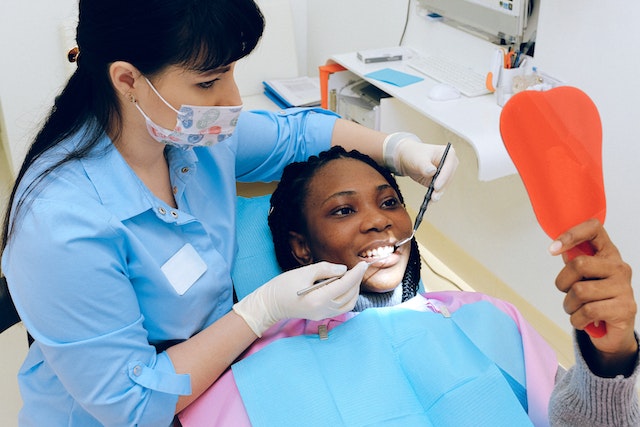Healthcare Degree Programs Welcome to the world of healthcare degree programs, where passion meets opportunity and the pursuit of knowledge transforms into a fulfilling career. In this comprehensive guide, we will delve into the diverse range of healthcare degree programs available today, exploring the educational pathways, specialized fields, and promising prospects they offer. Whether you are a high school graduate contemplating your future or a working professonal seeking a career change.
Why Pursue a Healthcare Degree?
Healthcare is a rapidly evolving field, driven by advancements in medical technology, an aging population, and the growing demand for quality care. Pursuing a healthcare degree opens doors to a rewarding career that combines science, compassion, and the opportunity to make a positive impact on people’s lives. Whether your passion lies in patient care, research, or administration, a healthcare degree equips you with the knowledge and skills necessary to excel in this dynamic industry.
Types of Healthcare Degree Programs
1. Bachelor’s Degree Programs
A bachelor’s degree in healthcare serves as an excellent foundation for various roles within the healthcare sector. This comprehensive program covers essential subjects such as anatomy, physiology, healthcare ethics, and medical terminology. Graduates can pursue careers as healthcare administrators, medical laboratory technicians, or healthcare consultants.
2. Master’s Degree Programs
Master’s degree programs in healthcare provide advanced knowledge and specialized skills in specific areas of healthcare. With programs ranging from healthcare management to public health, students can tailor their education to match their career goals. Graduates of master’s programs often work as healthcare managers, healthcare policy analysts, or public health professionals.
3. Doctoral Degree Programs
Doctoral degree programs offer the highest level of education in the healthcare field. These programs focus on research, leadership, and advanced clinical practice. Graduates can pursue careers as healthcare researchers, professors, or specialized practitioners.
4. Associate Degree Programs
Associate degree programs provide a shorter and more focused path to entry-level healthcare careers. These programs typically span two years and offer coursework specific to the chosen field, such as medical assisting or dental hygiene.
5. Certificate Programs
Certificate programs cater to individuals seeking to enhance their skills in a specific healthcare area without committing to a full degree program. These programs are ideal for professionals looking to expand their expertise or transition into a new healthcare role.
Specializations in Healthcare
1. Nursing
Nursing is one of the most versatile and in-demand healthcare professions. Nurses play a critical role in patient care, collaborating with other healthcare professionals to provide comprehensive medical assistance. Specializations in nursing include pediatric nursing, psychiatric nursing, and critical care nursing.
2. Medicine
Medical degree programs train future doctors to diagnose and treat illnesses, injuries, and diseases. Medical students acquire extensive knowledge of human anatomy, pharmacology, and medical ethics. Upon graduation, physicians can specialize in various fields such as cardiology, neurology, or dermatology.
3. Pharmacy
Pharmacy degree programs prepare students for careers in the pharmaceutical industry. Pharmacists are responsible for dispensing medications, advising patients on proper medication use, and ensuring drug safety. Specializations in pharmacy include clinical pharmacy, pharmaceutical research, and pharmacy administration.
4. Physical Therapy
Physical therapy degree programs focus on the diagnosis and treatment of physical disabilities or injuries.Therapists help patients regain mobility, manage pain, and improve their overall physical well-being. Specializations within physical therapy include sports therapy, pediatric therapy, and geriatric therapy.
5. Dentistry
Dentistry degree programs train future dentists to diagnose and treat dental issues, maintain oral health, and perform dental surgeries. Dentists play a crucial role in ensuring the well-being of patients’ oral health. Specializations within dentistry include orthodontics, endodontics, and periodontics.
Choosing the Right Healthcare Degree Program
Factors to Consider
When selecting a healthcare degree program, several factors should be taken into account. These include personal interests, career goals, program duration, location, and financial considerations. It’s essential to choose a program that aligns with your aspirations and offers opportunities for growth and specialization.
Accreditation
Accreditation is a vital aspect to consider when evaluating healthcare degree programs. Accredited programs meet high educational standards and are recognized for providing quality education. Employers and professional licensing boards often require candidates to graduate from an accredited program.
Career Opportunities
Research the career opportunities available in your desired healthcare field before choosing a degree program. Understanding the demand, growth potential, and earning prospects will help you make an informed decision and set realistic expectations for your future career.
Frequently Asked Questions
1: What is the duration of a typical healthcare degree program?
The duration of healthcare degree programs can vary depending on the level of education. Bachelor’s degree programs usually take around four years to complete, while master’s programs typically range from one to two years. Doctoral programs can take three to seven years, depending on the specialization.
2: Are online healthcare degree programs as reputable as traditional programs?
Yes, online healthcare degree programs can be just as reputable as traditional programs. Many reputable universities and institutions offer online healthcare programs that provide the same quality education and accreditation as their on-campus counterparts. It’s crucial to choose accredited online programs from reputable institutions.
3: Can I specialize in multiple areas within healthcare?
Yes, healthcare professionals often pursue multiple specializations to expand their knowledge and career opportunities. Some fields allow for overlapping specializations, enabling professionals to work in various areas of expertise. It’s essential to research the specific requirements and opportunities within your desired fields.
4: What are the prerequisites for admission into a healthcare degree program?
Prerequisites for healthcare degree programs vary depending on the institution and program. Common prerequisites include a high school diploma or equivalent, satisfactory grades in prerequisite courses (such as biology or chemistry), letters of recommendation, and standardized test scores (e.g., SAT or ACT). Check with individual programs for specific requirements.
5: How do healthcare degree programs prepare students for real-world practice?
Healthcare degree programs incorporate practical training, such as clinical rotations, internships, and simulations, to provide hands-on experience. These experiences help students develop the necessary skills and knowledge to excel in real-world healthcare settings. Programs also emphasize critical thinking, problem-solving, and effective communication.
6: What are the job prospects for healthcare professionals?
Job prospects for healthcare professionals are generally excellent due to the growing demand for healthcare services. The healthcare industry offers a wide range of career opportunities across various sectors, including hospitals, clinics, research institutions, and pharmaceutical companies. Continued advancements in medical technology and an aging population contribute to a positive job outlook for healthcare professionals.
Conclusion
Embarking on a healthcare degree program opens up a world of possibilities in the dynamic and rewarding field of healthcare. Whether you aspire to become a nurse, physician, pharmacist, or physical therapist, the knowledge and skills gained through these programs will empower you to make a meaningful impact on people’s lives. Remember to carefully consider your interests, goals, and program requirements when choosing the right healthcare degree program for you. With dedication, hard work, and a passion for helping others, you can unlock a bright future in the ever-evolving healthcare industry.













